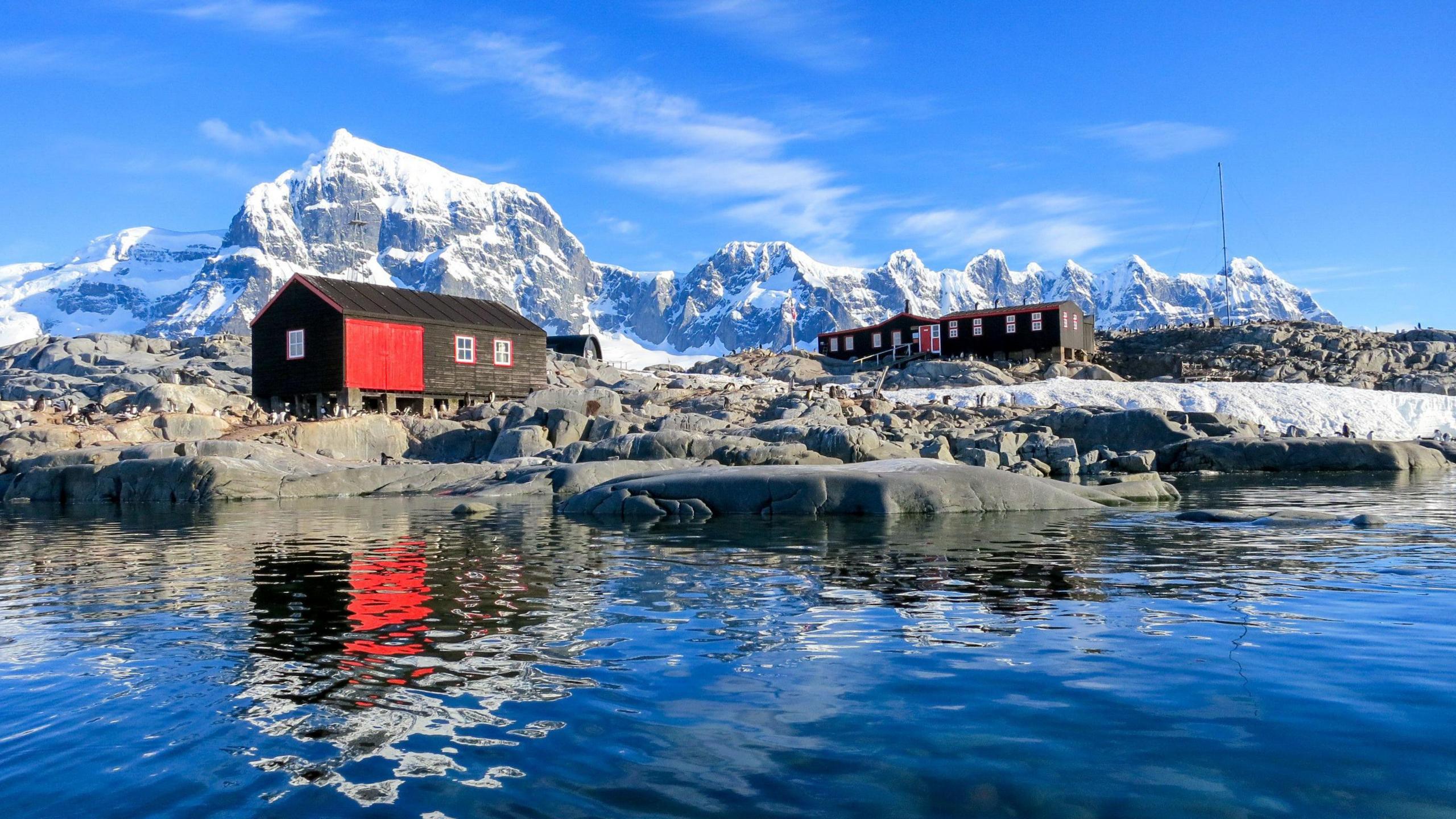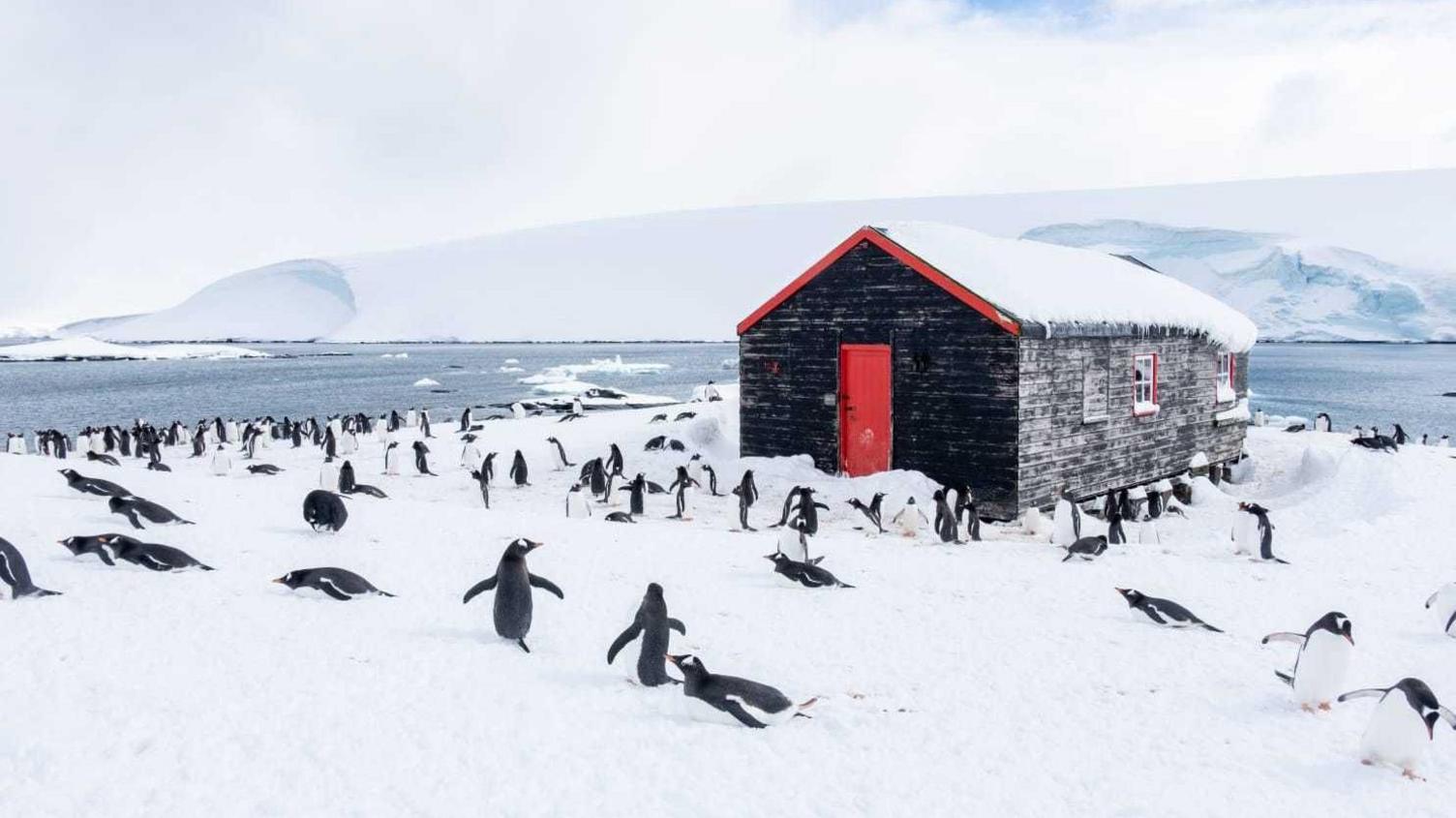Constant daylight, DIY and no flushing toilets: Life at a GB Antarctic base

This is Port Lockroy on Goudier Island
- Published
A new team is being sent to Antarctica to look after a heritage site on the world's southernmost continent.
The 9,000-mile mission is part of a three-year project to protect Britain's first permanent scientific base on the continent from the effects of climate change.
The UK Antarctic Heritage Trust sends a team to Port Lockroy, a former British military base every year to manage the area.
The site on Goudier Island includes the world's most southern Post Office, a small museum and a colony of more than 1,000 gentoo penguins.
N-ice work! Team to count penguins on tiny Antarctic island
- Published9 October 2024
Antarctica: How has it changed
- Published6 February 2023
What's it like living in Antarctica?
Port Lockroy, which is now more than 80 years old, needs repairs due to age and environmental factors including increased rainfall and snow loading.
The 2025-26 team will be based at Goudier Island for the next few months and will spend Christmas on the island, which is only about the size of a football pitch.
As well as carrying out conservation works, they will be running a Post Office, a museum and gift shop, and will monitor the penguin population.
The team will have no running water or flushing toilets, and will work in almost constant daylight and sub-zero conditions.
This year's team is made up of base leader Lisa Ford, shop manager Tiago Figueiredo, museum manager Amanda Barry, postmaster George Clarke, wildlife monitor Alette Kattenberg and conservation carpenters Jolyon Oliver and Jim Brearley-Ratcliffe.

Goudier island is home to a colony of
Base leader Ms Ford previously trained as a doctor and then spent much of her life travelling and working abroad including as as a medic for the British Antarctic Survey .
She said: "I can't wait to be back in a place I love, amongst the magnificent scenery and wildlife.
"I love the simplicity of life there, living and sharing the island with the penguins and other wildlife."

The team must work in sub zero conditons
Conservation carpenter Mr Oliver said: "This role will allow me to use the skills passed down through generations of makers in my family to help preserve something truly unique."
Ms Barry, who lives in the Scottish Highlands, has family history rooted in Antarctica as her father had worked at Port Lockroy in 1948-1949.
"To live and work at Port Lockroy is the culmination of a dream for me. A dream that started with the chance discovery of my father's own Port Lockroy journals and papers from his time there in 1948." she said.
"He vowed to return but never could, so I feel incredibly thrilled to be keeping that vow in his memory."
